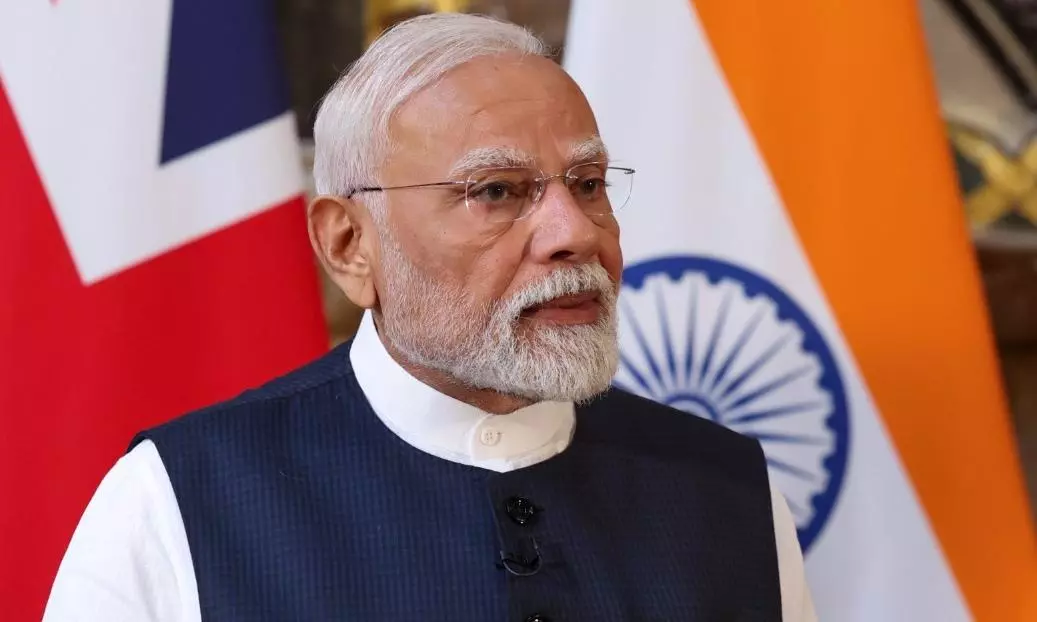India faces trade trap risks as US-Indonesia deal sets dangerous precedent
For decades, India and Indonesia stood shoulder to shoulder in global trade forums, but this now lies in tatters; Jakarta’s U-turn raises big questions for India


India could risk walking into a bilateral trade trap with the United States if the latter imposes the same terms it did with Indonesia.
While US President Donald Trump has called the deal struck between Washington DC and Jakarta a “historic breakthrough”, the arrangement could prove to be lopsided for Indonesia.
New Delhi should worry
Under Trump’s “America First” template, Indonesia granted a zero-tariff access to a broad range of American goods — in exchange for a 19 per cent reciprocal tariff on its own exports to the US.
“Indonesia has also agreed, for the first time ever, to COMPLETELY OPEN ITS MARKET TO THE USA. That’s BIG!!! Our businesses will make a fortune. Likewise Japan!” Trump boasted on his social media platform Truth Social on July 22.
Also read | India-UK FTA: Generalities masquerade as historic treaty
“It is agreed that Indonesia will be Open Market to American Industrial and Tech Products, and Agricultural Goods, by eliminating 99% of their Tariff Barriers. The United States of America will now sell American Made products to Indonesia at a Tariff Rate of ZERO, while Indonesia will pay 19% on all of their products coming into the U.S.A. — The Best Market in the World!” he added, implying the staggering gap.
Sweeping concessions
It didn’t stop at the tariffs.
The US also extracted sweeping concessions from Indonesia such as:
a) Guaranteed access to critical minerals exports.
b) Major procurement deals for Boeing aircraft, American farm products, and US energy — reportedly worth tens of billions of dollars.
c) Binding commitments on World Trade Organisation (WTO) rules, even as the U.S. continues to brazenly flout its own WTO obligations.
WTO commitments, a bitter pill
Indonesia also agreed to adhere to stringent WTO disciplines, despite the Trump administration’s open disregard for multilateral trade norms. This includes the controversial Fish 1 Agreement on illegal, unreported, and unregulated (IUU) fishing — a sensitive issue for Indonesia given its vast coastal economy and reliance on traditional fisheries.
Also read | 'To fully capitalise on FTA with UK, India must outperform Chinese exports'
Jakarta has now pledged to permanently support the WTO moratorium on customs duties on electronic transmissions — a stance completely at odds with the position Indonesia once shared with India, something which will make New Delhi worried.
Alliance under threat
For decades, India and Indonesia stood shoulder to shoulder in global trade forums — most notably the G33 coalition of developing nations, advocating for food security, special safeguards, and protection of smallholder farmers.
The US-Indonesia deal is not a trade agreement; it is a declaration of economic dominance. If New Delhi follows suit, it risks not only massive loss of revenues and policy constraints but also weakening decades of multilateral collaboration with the Global South.
Both nations also pushed for an end to the WTO’s e-commerce moratorium, which has deprived developing countries of billions in customs revenue.
That consensus now lies in tatters. Jakarta’s sudden U-turn raises urgent questions for India: Will the Modi government abandon its hard-fought position on digital tariffs and food security to placate the US?
Also read | Should India placate Trump administration by allowing imports of GM crops?
What’s at stake for India
The Indonesian deal could easily become a template for a similar US-India agreement — and the signs are already visible.
The US has reportedly demanded:
a) Steep cuts in Indian tariffs on industrial and agricultural goods.
b) Overhaul of Indian IT sector tax policies, including the removal of VAT.
c) Binding commitments on WTO compliance, even as the US continues unilateral protectionist policies.
d) Greater access to Indian markets in pharmaceuticals, tech, and services.
Jakarta has now pledged to permanently support a WTO moratorium on customs duties on electronic transmissions — a stance completely at odds with the position Indonesia once shared with India, something which will make New Delhi worried.
India is already facing economic strain due to punitive American tariffs such as:
a) 50 per cent tariff on Indian steel and aluminum exports.
b) 25 per cent tariff on auto parts.
c) Likely additional tariffs on pharmaceuticals and other sectors.
Capitulate or confront
With the August 1 deadline fast approaching, New Delhi faces a stark choice.
It can either capitulate to Washington DC’s coercive trade terms — effectively signing on to a deal many would equate with a modern-day East India Company Act II.
Or
It can stand firm, reject the predatory terms, and uphold its economic sovereignty — even if that means walking away from the deal in its entirety.
As it stands, the US-Indonesia deal is not a trade agreement; it is a declaration of economic dominance. If New Delhi follows suit, it risks not only massive loss of revenues and policy constraints but also weakening decades of multilateral collaboration with the Global South.
India must choose wisely — because once the deal is signed, it could reach a point of no return.

